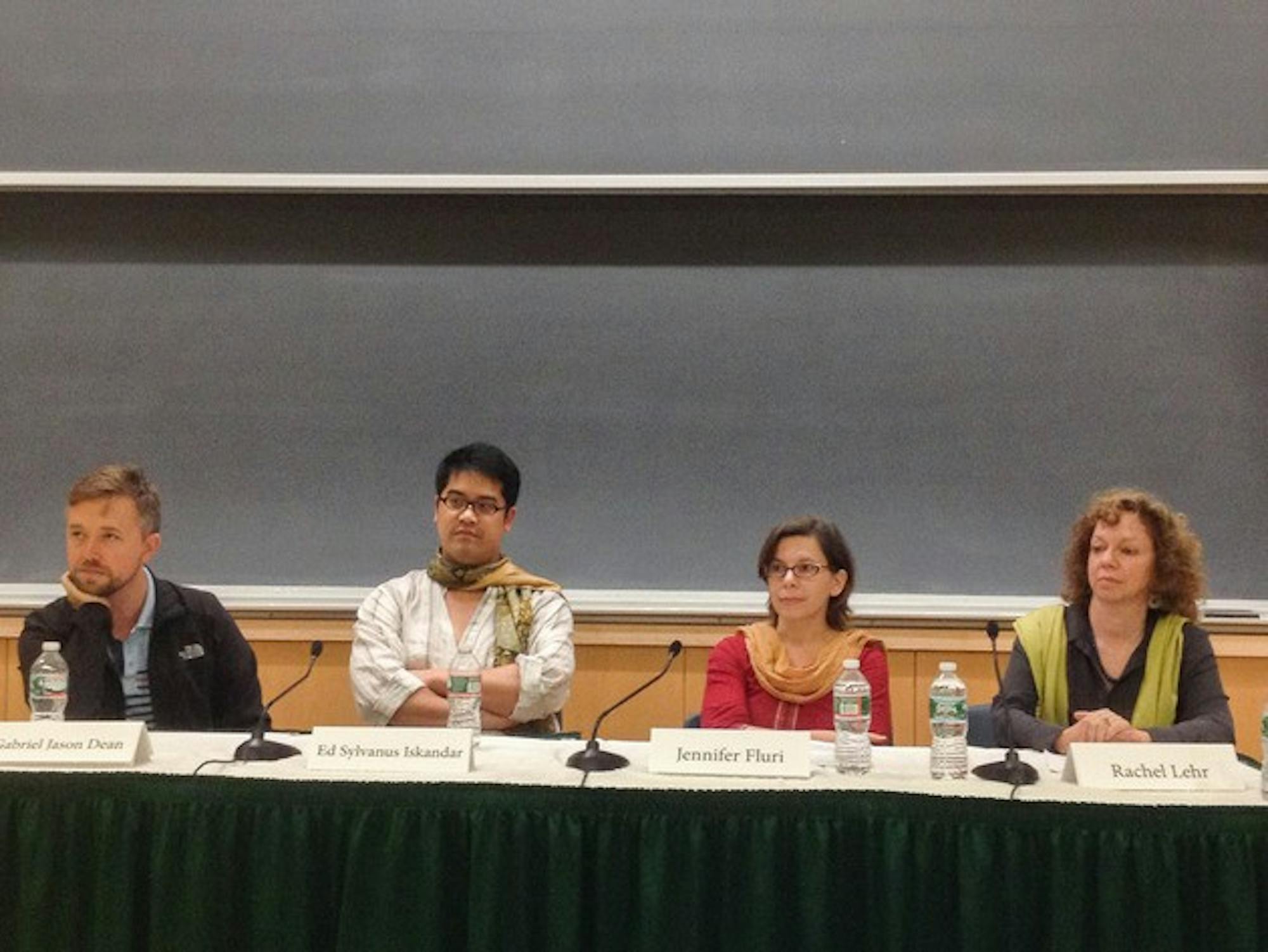In the play, the protagonist Aaron is an American documentary filmmaker who goes to Afghanistan harboring Western conceptions and tries to help the dancing boys.
The play is an allegory for American involvement in Afghanistan and examines the nature of altruism, but does not attempt to pass a moral judgment on bacha bazi.
A panel held on Friday offered a chance to examine the practice from both an academic and artistic perspective, and was attended by about 30 students, community members and people involved in producing the play.
Afghanistan scholar Rachel Lehr and geography professor Jennifer Fluri, who have studied the country extensively, sat down with Dean and "Bacha Bazi" director Ed Iskandar to share their knowledge of Afghanistan, discuss bacha bazi and question how the subject would be portrayed.
Fluri emphasized that while dancing, though repressed by the Taliban, is a cultural practice in Afghanistan, sexual abuse of boys is not.
Afghanistan is a largely patriarchal society that heavily emphasizes honor, Fluri said. Dancing boys dress in flashy, feminine clothing because they are not considered men, but they do not wear traditional women's clothing to avoid dishonoring their families.
"Understanding the way gender operates is a way to understand bacha bazi," she said.
Since dancers and musicians occupy a low social position in Afghanistan, dancing boys rely on their craft to help feed their families.
Fluri said that bacha bazi is not well-documented by social scientists and it is therefore "dangerous" to call it a cultural practice.
"There is an active goal on Afghanistan's part not to talk about this," Dean said.
Over a noisy lunch on Sunday, a dozen of the "Bacha Bazi" artists discussed their creative process, occasionally breaking out into song.
Dynamics of sexuality, gender and heteronormativity are important topics explored in the play. While not representative of all dancing boys, the main character, Hafiz, is gay and finds dancing to be empowering.
Sevan Greene, who plays Munir, said his character adopts Hafiz from an early age and trains him to be a bacha bazi.
Munir, who acts as a father figure and strives to provide a good life for his dancing boys, clarifies the practice.
"They're just traditions, to add any kind of negative or positive spin to it is wrong," Greene said.
Choreographer Jeffrey Page said the world he is creating is fantastical, beautiful and sensual, focusing on the angelic, divine movement the dancers create rather than demonizing the practice of bacha bazi.
Six members of theater professor Jamie Horton's Drama in Performance class are involved in the play's ensemble and have been working with music director David Dabbon to develop pieces that mix Mo-Town with Afghani music.
When American music was allowed back into Afghanistan after the fall of the Taliban, Western cultural influences quickly spread through the country.
"It's such an amazingly simple statement of two cultures in communication," Iskandar said.
Chris Gallerani '15 said he has loved connecting with theater professionals and being exposed to global issues through artists from all over the world.
Max Samuels '15, also a member of the ensemble, said the workshop has allowed him to learn about the professional creative process.
"They don't come in knowing exactly what it is they want to do," he said. "They're more allowing themselves to create."
The final play is under consideration for production with the New York Theatre Workshop next year and has an option with a Broadway producer.
There will be a reading and some stage acting of the latest version of "Bacha Bazi" on Saturday at 8 p.m. in Bentley Theater.
The panel was held on Friday afternoon in Haldeman Hall and was co-sponsored by the Dickey Center for International Understanding and the Hopkins Center.



